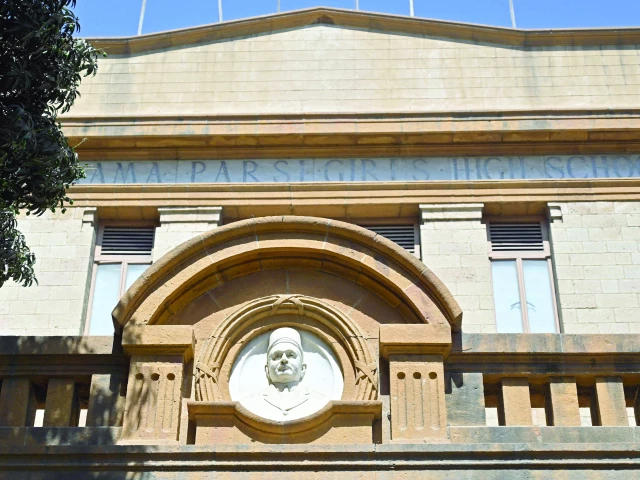KARACHI:
From a gated community for her Zoroastrian faith in Karachi, 22-year-old Elisha Amra has waved goodbye to many friends migrating abroad as the ancient Parsi community dwindles.
Soon the film student hopes to join them — becoming one more loss to Pakistan’s ageing Zoroastrian Parsi people, a community who trace their roots back to Persian refugees from Iran more than a millennium ago.
“My plan is to go abroad,” Amra said, adding that she wants to study for a master’s degree in a country without the restrictions of a conservative Muslim-majority society. “I want to be able to freely express myself,” she added.
Zoroastrianism, founded by the Zarathustra, was predominant religion of the ancient Persian empire, until the rise of Islam in the seventh century. In Pakistan, once the Parsi community had as many as 15,000-20,000 people but now the number is 900 people in Karachi and a few dozen more elsewhere.
Amra acknowledges her life is more comfortable than many in Pakistanthe Parsis are in general an affluent and highly educated community. But she says she wants to escape the daily challenges that beset the city of some 20 million people — from power cuts, water shortages to violent street crime.
Zubin Patel, 27, a Parsi working in e-commerce in Karachi, has seen more than two dozen Parsi friends leave Karachi for abroad in the past three years. “More than 20-25 of my friends were living in Karachi, they all started migrating”, he said.
That is not unique to Parsis — many young and skilled Pakistanis want to find jobs abroad to escape a country wracked with political uncertainty and security challenges, a struggling economy and woeful infrastructure.
The number of highly skilled Pakistanis who left for jobs abroad more than doubled according to the latest figures from the Pakistan Economic Survey — from 20,865 in 2022, to 45,687 in 2023.
Parsis are struggling to adjust in a fast-changing world. “There is a better chance to find a Zoroastrian partner in Canada, Australia, UK and America than in Pakistan,” said Dinshaw Behram Avari, 57, the head of one of the most prominent Parsi families.
Avari, who heads a chain of hotels, points out that Parsi population of Toronto is some 10 times greater than Karachi. He said that a wave of Parsis left Pakistan during the hardline military rule of Ziaul Haq in the 1980s.
Since then, violence has targeted religious minorities, and while Parsis say they have not been targeted, they remain wary. Avari suggested the community’s high levels of education and Western outlook to life meant many eyed a future abroad, while for those who do stay, family size is shrinking.
“Couples are more interested today in looking after their career; they are not interested in family,” he said. “When they do get married, they will have one child — and one child is not enough to make a positive impact on the population.”
Parsi members were among the pioneers of the shipping and hospitality industries in Karachi, and the city’s colonial-era historic district is dotted with Parsi buildings including hospitals and schools. But as the community declines, many buildings have crumbled.
For many among the younger generation, the only pull left keeping them in Pakistan is their ageing relatives. Patel said that he would leave if he could. “It would be a difficult decision,” he said. “But if I have an opportunity which would give my parents … a healthy lifestyle, then I’d obviously go for it”.

